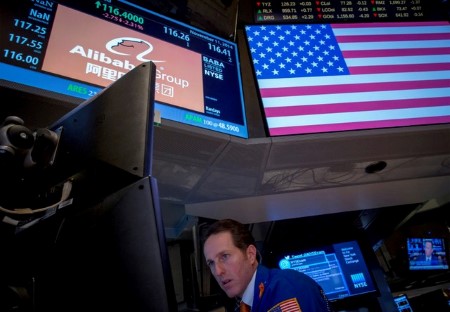




Philippines Trade Update: Imports weaken on tepid demand
 DOWNLOAD
DOWNLOAD

Policy Rate Updates: BSP outlook — cloudy with a chance of rate cut
 DOWNLOAD
DOWNLOAD

January Economic Update: Growth slows, prices rise
 DOWNLOAD
DOWNLOAD


Hedge funds suffer further outflows in Q3, stockpickers lead way

Oct 21 (Reuters) – Investors pulled an estimated $26 billion from hedge funds during the third quarter, according to data provider HFR, jarred by a global stock market plunge, soaring bond yields and geopolitical tensions.
That comes on top of a $27.5 billion outflow in the second quarter, the first time that hedge funds have seen consistent outflows from one quarter to the next since the height of the COVID pandemic in 2020, HFR numbers showed.
According to the data provider, the outflows were driven by a $12.4 billion decline in assets from hedge funds that take bets on the equity markets. However, money flowed out of every kind of hedge fund strategy, even if it was performing well.
MSCI’s World Stock Index is down about 26% so far this year and set for its biggest annual loss since the global financial crisis in 2008.
Major stock indexes continued to slide on Friday while U.S. Treasury yields rose to multi-year highs on expectations that the Federal Reserve will continue to aggressively pursue inflation with a much tighter monetary policy.
Equity hedge fund strategies that HFR tracks saw $12.4 billion of outflows in the third quarter.
An index of event driven funds, which make bets on company mergers and acquisitions, saw $600 million of outflows during the quarter, HFR data said.
Even hedge funds that have done well and made use of market volatility, like those which trade on macro-economic signals, saw outflows of $10.7 billion despite the fact one HFR index says their perfomance numbers are up over 17% for the year, HFR said.
The biggest hedge funds saw the largest declines in performance and how much money other investors have given them to manage, often combine as a figure called assets under management, HFR said.
Uncertainty would continue into the fourth quarter of the year, said HFR President Kenneth J. Heinz said. He expected that “extreme volatility and the potential for dislocations” would carry through to year end.
(Reporting by Nell Mackenzie; Editing by Dhara Ranasinghe and Angus MacSwan)
This article originally appeared on reuters.com





 By Reuters
By Reuters